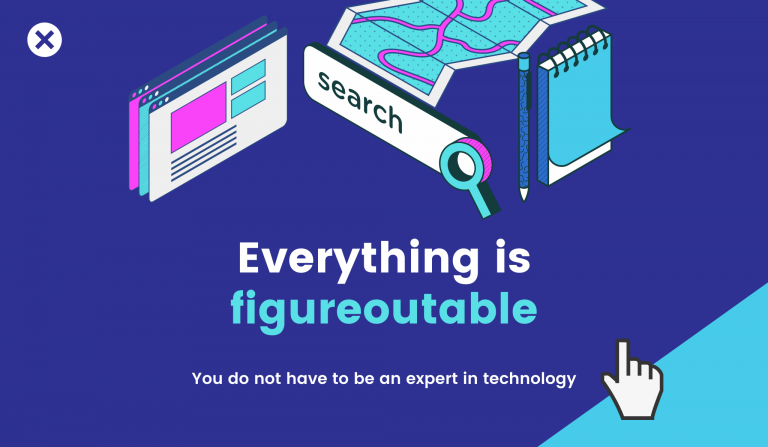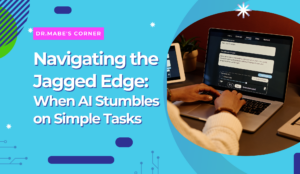Recently, I was having a conversation with one of my teachers. She came to me for help moving her project up the SAMR Model from augmentation to at least modification. I gave her one example of an industry level technology tool she could use with her students. I was excited about my suggestion and assumed she would be, too. However, she wrinkled her nose and said, “I don’t have time to learn that and I don’t want to require my students to use a tool when I won’t be able to answer all of their questions.”
To be honest, I don’t know ALL the ins and outs of the tool either. You also may be thinking, that seems fair if it was a kindergarten class. However, it was a class of high school seniors. I didn’t push it, but I have been reflecting on her answer ever since.
In my own classroom, I have absolutely assigned my students to do something, such as make a rap about quarks in GarageBand, without knowing anything about how to use Garageband myself. The students definitely asked me how to do things I didn’t know how to do, and my answer was always the same, “let’s Google it and figure it out.” Between Google and other students in the class, we were always able to figure everything out.
The interaction with the teacher had me thinking, was I a “bad” teacher when I did that? Should I have become the expert on the tech tool before I assigned it? I have come to the conclusion that no, you do not have to be the expert on the technology.
As teachers this may be hard for us to hear. When it comes to the subject and contect of the class, we are used to being the expert. We can answer (most) questions. For the Quarks Rap assignment, (almost) all of the questions the students asked me about the science I was able to answer. So, not knowing something like, how to enter a textbox into a Canva Infographic may be hard to admit. However, I argue that when we don’t know something and we show the students how to find the answer, we are teaching them good Habits of Mind. The next time they try to do something on their iPad that they don’t know how to do – and there will be a next time – they may stop and think I can look this up and figure it out myself instead of needing someone there to show them.
Now, on my desk, I have a sign that says “Everything is Figureoutable,” and I try to model this for my students and teachers every day.





